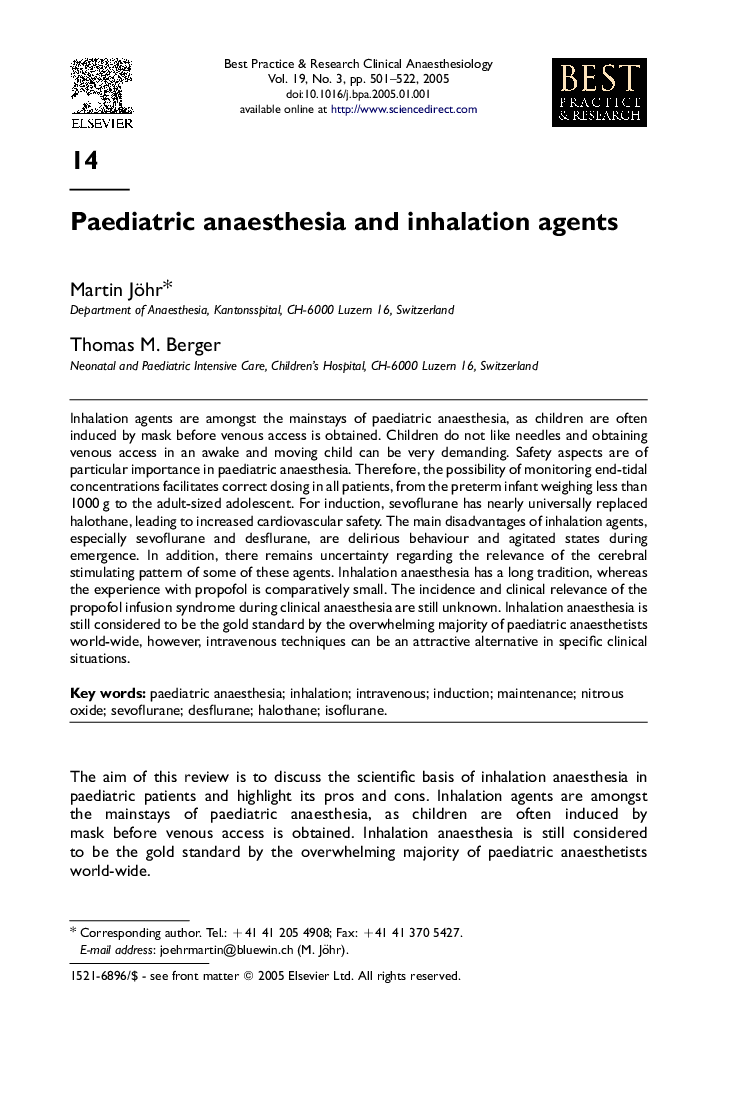| کد مقاله | کد نشریه | سال انتشار | مقاله انگلیسی | نسخه تمام متن |
|---|---|---|---|---|
| 9092693 | 1149230 | 2005 | 22 صفحه PDF | دانلود رایگان |
عنوان انگلیسی مقاله ISI
Paediatric anaesthesia and inhalation agents
دانلود مقاله + سفارش ترجمه
دانلود مقاله ISI انگلیسی
رایگان برای ایرانیان
کلمات کلیدی
موضوعات مرتبط
علوم پزشکی و سلامت
پزشکی و دندانپزشکی
بیهوشی و پزشکی درد
پیش نمایش صفحه اول مقاله

چکیده انگلیسی
Inhalation agents are amongst the mainstays of paediatric anaesthesia, as children are often induced by mask before venous access is obtained. Children do not like needles and obtaining venous access in an awake and moving child can be very demanding. Safety aspects are of particular importance in paediatric anaesthesia. Therefore, the possibility of monitoring end-tidal concentrations facilitates correct dosing in all patients, from the preterm infant weighing less than 1000Â g to the adult-sized adolescent. For induction, sevoflurane has nearly universally replaced halothane, leading to increased cardiovascular safety. The main disadvantages of inhalation agents, especially sevoflurane and desflurane, are delirious behaviour and agitated states during emergence. In addition, there remains uncertainty regarding the relevance of the cerebral stimulating pattern of some of these agents. Inhalation anaesthesia has a long tradition, whereas the experience with propofol is comparatively small. The incidence and clinical relevance of the propofol infusion syndrome during clinical anaesthesia are still unknown. Inhalation anaesthesia is still considered to be the gold standard by the overwhelming majority of paediatric anaesthetists world-wide, however, intravenous techniques can be an attractive alternative in specific clinical situations.
ناشر
Database: Elsevier - ScienceDirect (ساینس دایرکت)
Journal: Best Practice & Research Clinical Anaesthesiology - Volume 19, Issue 3, September 2005, Pages 501-522
Journal: Best Practice & Research Clinical Anaesthesiology - Volume 19, Issue 3, September 2005, Pages 501-522
نویسندگان
Martin Jöhr, Thomas M. Berger,